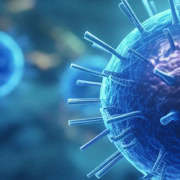Nutrition & Aging – A Healthy Lifestyle via Healthy Eating

Nutrition Plays an Important Role Throughout Your Life Span
There is increasing scientific and clinical interest in the interactions of nutrition and health as part of the aging process. This interest is due to the important role that nutrition plays throughout the life span. This role affects the growth and development of the body during childhood, affects the risk of acute and chronic diseases, the maintenance of physiological processes and the biological process of aging.
There are several scientific journals devoted to the role of nutrition and aging. The aim of “The Journal of Nutrition, Health & Aging” is to contribute to the improvement of knowledge regarding the relationships between nutrition and the aging process from birth to old age.”
According to the Academy of Nutrition and Dietetics, 70% of the physical decline among older adults with chronic disease is associated with modifiable risk factors such as poor nutrition, physical inactivity, and smoking. In addition, nearly 90% of older adults have diabetes, hypertension, high cholesterol, or a combination of all three. Each of these conditions have nutrition-related components.
Nutrition Requirements as We Age

A healthy diet becomes even more important as we age
While healthy eating is essential in all stages of life, eating well is especially important for older adults. Wise food choices and a balanced diet are key elements to a healthy lifestyle and can both slow and improve the aging process.
Our body goes through changes as we age. First of all, the body’s daily energy needs slowly decrease. Therefore, we likely need fewer daily calories than when we were younger. In addition, natural hormone changes make our body prone to depositing more body fat (usually around the mid-section) and less muscle. The situation is compounded by the amount of carbohydrates in our diet.
As we gain weight, our body moves toward a state of “insulin resistance” or Metabolic Syndrome. It has become an epidemic in the US partly due to our unhealthy lifestyle and partly due to the changing nature of our diet and food supply.
Your risk for hypertension (high blood pressure), high cholesterol, heart disease, diabetes, and stroke increases with the number of metabolic risk factors you have. The risk of having metabolic syndrome is closely linked to being overweight and obesity and a lack of physical activity.
Insulin resistance also may increase your risk for metabolic syndrome. Insulin resistance is a condition in which the body can’t use its insulin properly. Insulin is a hormone that helps move blood sugar into cells where it’s used for energy. Insulin resistance can lead to high blood sugar levels, and it’s closely linked to being overweight and obesity. Genetics (ethnicity and family history) and older age are other factors that may play a role in causing metabolic syndrome.
Metabolic syndrome is becoming more common due to a rise in obesity rates among adults. In the future, metabolic syndrome may overtake smoking as the leading risk factor for heart disease.
It is possible to prevent or delay metabolic syndrome, mainly with lifestyle changes. A healthy lifestyle is a lifelong commitment. Successfully controlling metabolic syndrome requires long-term effort and teamwork with your health care providers.
Anti-Oxidants and Anti-Aging

Fruits and vegetables are a great source of anti-oxidants
The role of antioxidants is a particularly popular nutrition topic in the media these days; in particular, their role in cancer prevention, anti-aging, and heart health.
Antioxidants, which are found mainly in fruits and vegetables, have been shown to help increase the body’s immune function by decreasing the chronic inflammation and oxidative stress that are often part of the aging process. Aging results in chronic low grade inflammation that is associated with increased risk for disease, poor physical functioning and mortality. Strategies that reduce age-related inflammation may improve the quality of life in older adults.
Omega 3 Fatty Acids
Heart disease is an all-too-common problem in our society, especially in the aging population. Omega 3 fatty acids are a type of polyunsaturated fat that plays an especially important role in heart health. Research has shown that omega 3 fats decrease the risk of arrhythmias, which can lead to sudden cardiac death, decrease triglyceride levels, lower blood pressure, and reduce the buildup of plaque on artery walls. The best sources of omega 3 fats are salmon, trout, flaxseeds, flaxseed oil, walnuts, and walnut oil. It is important to include these foods on a regular basis.
While good nutrition is essential for a healthy lifestyle, exercise combined with healthy eating is the most effective way to reduce the risk of age-related chronic conditions, like diabetes, heart disease, and osteoporosis. In addition, regular exercise can help reduce the risk of falls by improving balance and coordination and also lead to an increased sense of well-being. If you are looking to become more physically active to improve your health, take the following into consideration:
Conclusions & Next Steps to a Healthy Lifestyle
By now it should be pretty apparent there are many controllable factors that can reduce or reverse the aging process. Once we pass 45 chronological years, the aging process accelerates and we must be much more serious in our efforts to stay fit and feeling young.
Answer these questions for yourself:
- How important is it for you to have high energy, stamina, and vigor?
- What’s the value of your health to you and your family?
- Are you willing to invest the time to get to a healthy state?
- In a perfect world what would your ideal health look like?
- How do you feel today compared to last year or the year before?
- Have you noticed how much harder it is to get and stay in shape?
- When was the last time you felt really, really good?
- What would be the cost to you if you suffered a serious health event?
- What’s holding you back from being in the best shape you can be?
- Can you do this on your own, or do you need help?
I can’t answer these questions for you, but I can help you make the right decision that will put you on the path to the best health of your life. This includes reversing the aging process. This isn’t something new for me. I’ve been constantly improving my training program for 30 years.








Trackbacks & Pingbacks
[…] having been an athlete all of my life, I have always been passionate about fitness, health and nutrition. With that, I have endured my share of injuries. Some of which forever changed my ability to […]
[…] began a new work in me. I have continued that process, working hard following your exercise and meal plans which were individually prepared especially for me. I appreciate your continued support and concern […]
[…] with all sorts of disorders and diseases to explain what was happening to me. For the last 2 years I ate only whole, organic foods, no fast foods or processed foods. Some people advised me to eat less. Some said I wasn’t […]
Comments are closed.